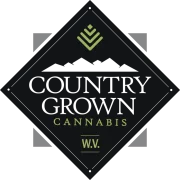Hemp vs. Marijuana: Why This Conversation Matters
Ever wonder why you can purchase THCA gummies or prerolls, but THC edibles and smoking marijuana (not including dry herb vaporization) remain illegal in the Mountain State? Many people across the country, including West Virginians, assume hemp products are “safer” or “less intense” than marijuana for one reason or another. But here’s the reality: hemp and marijuana often share the exact same cannabinoids. The real difference? How they’re regulated.
Thanks in part to a loophole in the 2018 Farm Bill¹, hemp companies can legally sell products like THCA flower and Delta‑8 edibles with far fewer restrictions than licensed dispensaries. Meanwhile, medical and recreational cannabis producers must jump through extensive hoops to meet testing, packaging, and seed‑to‑sale tracking requirements.
The 2018 Farm Bill: The Loophole Explained
Hemp was legalized federally in 2018 as long as it contained ≤0.3% Delta‑9 THC by dry weight. What the bill didn’t account for were other cannabinoids (like THCA, Delta‑8, or Delta‑10) that can be psychoactive.
This narrow definition opened the door for hemp‑derived products that technically meet the ≤0.3% Delta‑9 THC limit but still deliver the same psychoactive effects as marijuana. This is why you can buy hemp products such as drinks, prerolls, and edibles in West Virginia, they simply fall below the federal legal threshold.¹
Hemp vs. Marijuana: How They’re Regulated
When it comes to regulation, hemp and marijuana couldn’t be treated more differently. Hemp businesses can legally sell products like high‑THCA flower, Delta‑8 gummies, and other cannabinoids, and you’ll often find these items sold in smoke shops, gas stations, and convenience stores, sometimes just steps away from schools or daycare centers. Picture a smoke shop with a neon cannabis plant glowing in the window, located right down the street from an elementary school.
Marijuana dispensaries operate under much stricter zoning laws and regulations compared to other businesses. They are required to tint their windows so that the interior is completely concealed from public view, and they must be located a significant distance away from schools and daycare centers. State law mandates comprehensive seed-to-sale tracking and extensive lab testing for every product. Additionally, dispensaries that cultivate and produce their own products, like Country Grown and a handful of others in West Virginia, must follow strict protocols for marketing, labeling, and signage, often facing tougher regulations than alcohol or tobacco retailers.
The Problem: Quality Control
“At the end of the day, hemp companies can sell many of the same cannabinoids that licensed dispensaries do, without the same level of oversight or quality control.”²
As one would imagine, this stark contrast leads to confusion for consumers. And because hemp businesses can sidestep cannabis‑specific testing and packaging laws, there’s less oversight and consistency. Furthermore, Hemp products are often sold as “safe alternatives,” even though the active compounds are identical to those in marijuana. Many people also don’t realize that hemp products can cause a positive drug test, because THCA converts into THC when heated and full spectrum CBD products contain THC, just below the legal limit. The lack of clarity creates unfair market conditions and leaves consumers asking themselves “what products can I truly trust?”
Breaking Down the Common Cannabinoids
THCA (Tetrahydrocannabinolic Acid)
- Found in raw cannabis.
- Non‑psychoactive until heated (technically falls below the legal threshold).
- Converts to THC through decarboxylation (smoking, vaping, baking).
- The molecular change means a positive THC drug test is highly likely.
THC (Delta‑9 Tetrahydrocannabinol)
- The primary psychoactive compound in marijuana.
- Hemp products must legally contain ≤0.3% Delta‑9 THC.
Delta‑8 THC
- Known for producing milder psychoactive effects.
- Usually synthetically derived from hemp CBD.
- Legal in some states, banned in others.
An interesting case to watch is Texas, where lawmakers are fighting over whether hemp‑derived THC products should be banned outright or strictly regulated. As of July 2025, the Texas Senate has advanced a bill that would eliminate most hemp products from shelves³.
Why Some States Are Cracking Down
Several states and federal lawmakers are pushing to redefine hemp laws to close the loophole. Proposed changes would test for total THC, which includes THCA, not just Delta‑9 Tetrahydrocannabinol (THC).
Some states already enforce stricter standards and have begun pulling non‑compliant hemp products off shelves.⁴ Without these updates, hemp‑derived psychoactive products will continue to be sold in ways medical and recreational cannabis never could.
Why Shared Understanding Matters for Consumers and Lawmakers
- Safety: Licensed cannabis producers invest in rigorous lab testing and quality control. Hemp products aren’t always subject to the same oversight.
- Clarity: A “hemp” label doesn’t guarantee the product is non‑psychoactive or THC‑free.
- Fairness: Licensed marijuana producers bear the cost of heavy regulation, while many hemp companies bypass these requirements.
The Bottom Line
Hemp and marijuana share the same plant species, but they’re regulated in completely different ways. Until federal law closes the loophole in the Farm Bill, consumers will continue to see hemp products that are legally sold everywhere, while dispensaries play by stricter rules.
Tip: Always request a Certificate of Analysis (COA) and buy from reputable retailers, such as dispensaries or hemp shops..
Sources
- Harlow, A. F., Leventhal, A. M., & Barrington‑Trimis, J. L. (2022). Closing the loophole on hemp‑derived cannabis products: A public health priority. JAMA, 328(20), 2007–2008. https://doi.org/10.1001/jama.2022.20620
- Simpson, S. (2025, July 30). Texas Senate advances bill to ban THC—again. The Texas Tribune. https://www.texastribune.org/2025/07/30/texas-hemp-thc-senate-bill-5/
- Raymond, N. (2025, July 9). The battle over buzz: Federal and state crackdowns on intoxicating hemp products escalate. Reuters. https://www.reuters.com/legal/litigation/battle-over-buzz-federal-state-crackdowns-intoxicating-hemp-products-escalate-2025-07-09/
- U.S. Department of Agriculture. (n.d.). Hemp production program – 2018 Farm Bill. Agricultural Marketing Service. https://www.ams.usda.gov/rules-regulations/hemp
- U.S. Food & Drug Administration. (2023, March 9). FDA and cannabis: Research and drug approval process. https://www.fda.gov/news-events/public-health-focus/fda-and-cannabis-research-and-drug-approval-process
